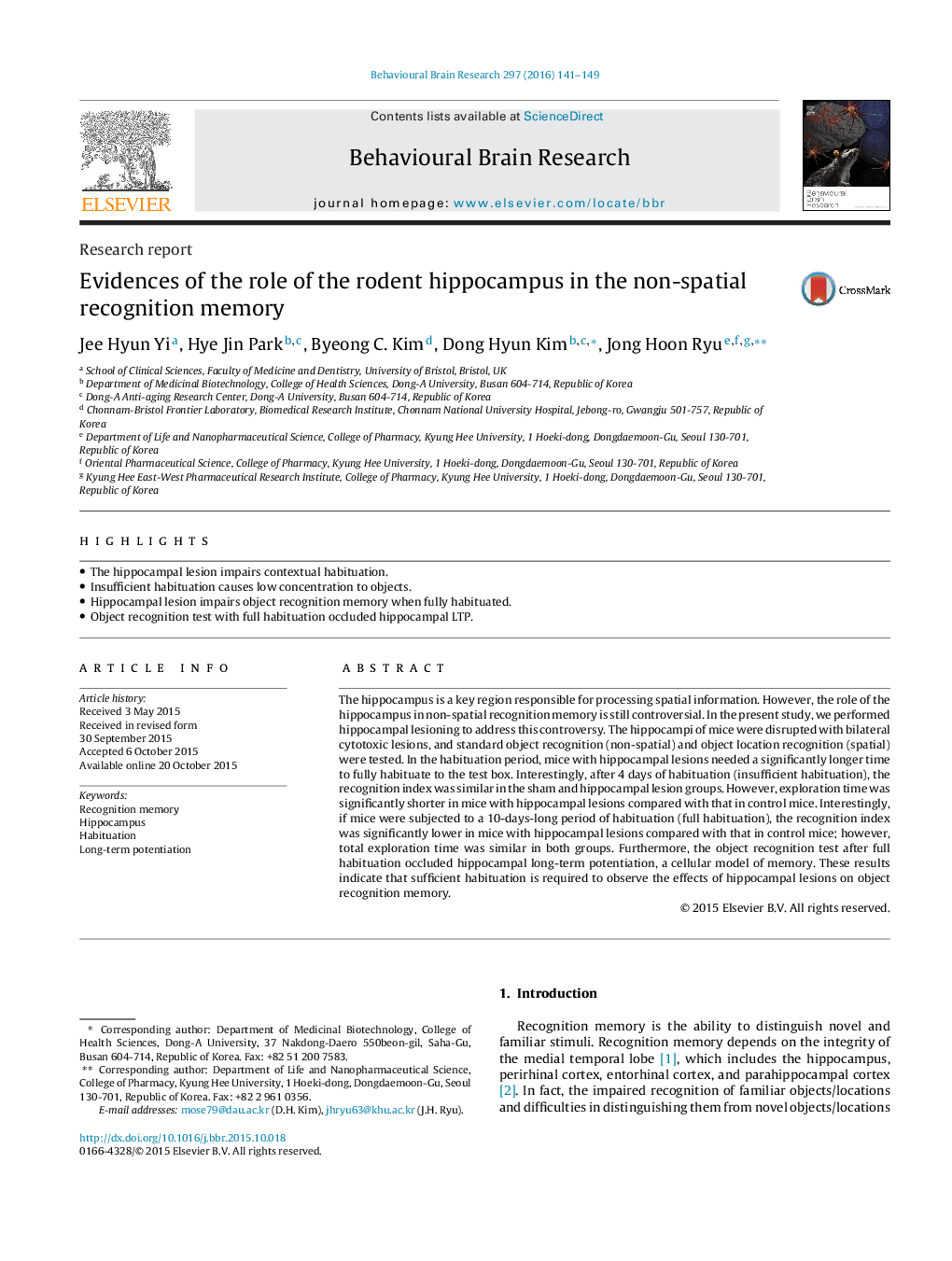| Article ID | Journal | Published Year | Pages | File Type |
|---|---|---|---|---|
| 6256380 | Behavioural Brain Research | 2016 | 9 Pages |
â¢The hippocampal lesion impairs contextual habituation.â¢Insufficient habituation causes low concentration to objects.â¢Hippocampal lesion impairs object recognition memory when fully habituated.â¢Object recognition test with full habituation occluded hippocampal LTP.
The hippocampus is a key region responsible for processing spatial information. However, the role of the hippocampus in non-spatial recognition memory is still controversial. In the present study, we performed hippocampal lesioning to address this controversy. The hippocampi of mice were disrupted with bilateral cytotoxic lesions, and standard object recognition (non-spatial) and object location recognition (spatial) were tested. In the habituation period, mice with hippocampal lesions needed a significantly longer time to fully habituate to the test box. Interestingly, after 4 days of habituation (insufficient habituation), the recognition index was similar in the sham and hippocampal lesion groups. However, exploration time was significantly shorter in mice with hippocampal lesions compared with that in control mice. Interestingly, if mice were subjected to a 10-days-long period of habituation (full habituation), the recognition index was significantly lower in mice with hippocampal lesions compared with that in control mice; however, total exploration time was similar in both groups. Furthermore, the object recognition test after full habituation occluded hippocampal long-term potentiation, a cellular model of memory. These results indicate that sufficient habituation is required to observe the effects of hippocampal lesions on object recognition memory.
